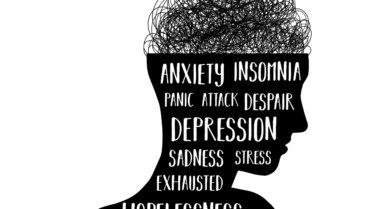Are you struggling with a boss who constantly belittles, criticizes, and undermines your work? Does the thought of going to work fill you with anxiety and dread?
Unfortunately, dealing with a mean boss is all too common in today’s competitive workplace. But fear not! In this ultimate guide, we’ll explore practical strategies for protecting your mental health from a toxic work environment. From setting boundaries to seeking support, we’ve got you covered. So let’s dive in and reclaim your power over your mental well-being on the job!
Signs That You Have a Mean Boss
- Your boss belittles you in front of others.
- Your boss is always critical of your work, no matter how hard you try.
- Your boss threatens you with demotion or firing if you don’t do what they want.
- Your boss routinely ignores your requests or concerns.
- Your boss makes you feel like you’re not good enough or that you’ll never be good enough.
- Your boss gives you impossible tasks with unrealistic deadlines.
- Your boss is always trying to micro-manage you every step of the way.
- Your boss takes credit for your hard work and accomplishments.
- Your boss consistently expects more from you than from their other employees.
- Your boss does not show appreciation for your efforts or reward them in any way.
Strategies to Protect Your Mental Health
It can be difficult to deal with a mean boss, but there are some strategies you can use to protect your mental health. First, try to keep communication open and honest. If you feel like your boss is being unreasonable, let him or her know calmly and respectfully. You may also want to set boundaries in terms of what you’re willing to do at work. For example, if your boss asks you to do something that makes you uncomfortable, don’t hesitate to say no.
It’s also important to take care of yourself outside of work. Make sure you have a support system in place, whether it’s friends, family, or a therapist. Dedicate time to hobbies or activities that make you happy. And most importantly, don’t forget to take breaks! When you’re feeling overwhelmed, step away from work and take some time for yourself. By taking these steps, you can protect your mental health while dealing with a difficult boss.
Above all, remember that it’s not your fault and you don’t have to put up with any kind of abuse. You deserve to be treated with respect and kindness.
Ways to Set Boundaries With Your Boss
It can be difficult to set boundaries with your boss, especially if you feel like you need to please them in order to keep your job. However, it is important to remember that you have a right to protect your mental health, and setting boundaries is one way to do this.
Some ways that you can set boundaries with your boss include:
- Communicating your needs and expectations clearly.
- Saying no when you are feeling overwhelmed or stressed.
- Asking for help when you need it.
- Taking breaks when you need them.
- Standing up for yourself if you feel disrespected.
Remember that you deserve to be treated with respect, and setting boundaries can help ensure that this happens.
What to Do When Your Boss Has Unprofessional Behaviour
If your boss has unprofessional behaviour, there are a few things you can do to protect your mental health. First, try to avoid getting in arguments with your boss. If you can, take a step back and let them cool down before you talk to them. Secondly, don’t take everything they say personally.
Sometimes people lash out when they’re feeling stressed or overwhelmed, and it’s not always directed at you. Make sure you have a support system at work that you can rely on. This could be a friend or colleague who you can vent to or confide in when needed. If your boss’s behaviour is really affecting your mental health, it might be best to speak to HR about the situation.
Finally, take care of your own wellbeing. Make sure you practice self-care and know your rights when it comes to a hostile work environment. It’s also worthwhile to look into any safety measures your company has that allows you to report unprofessional behaviour without fear of retribution.
How to Handle Criticism from Your Boss
If you’re unlucky enough to have a boss who loves to criticize, it can be tough to protect your mental health. But there are some things you can do to make the situation better.
First, try to see the criticism as constructive. It’s not easy, but it will help you feel better about yourself. Second, don’t take the criticism personally. It’s not about you as a person, it’s about your work. Talk to someone else about the situation. A friend or family member can help you put things in perspective.
If you’re struggling to deal with a critical boss, remember that you’re not alone. There are ways to handle the situation so that you can stay healthy and happy.
- Ask for feedback. One way to handle criticism from your boss is to invite them to give you feedback in a safe space. Ask them to be specific about what they would like you to work on and how you can improve on any areas of weakness. This helps provide context and encourages open dialogue rather than passively accepting whatever criticism comes your way.
- Don’t take it personally. It’s not a reflection of who you are as a person but rather how you are performing at the job. See it as an opportunity to learn and grow from the experience, instead of getting bogged down in feelings of inadequacy or hurt.
- Use the criticism constructively. Instead of immediately feeling insulted or hurt, try to reflect on what is being said and see if there is any value in what your boss is saying. Are there areas where you could improve? Take note and use this as an opportunity for growth, rather than letting the commentary ruin your day (or week).
- Talk it out with someone else outside of work who can provide an unbiased opinion such as a friend or mentor who isn’t directly connected with your job or workplace environment
- Remain professional even when dealing with criticism from your boss. It’s important to maintain a professional stance and stick to the facts when discussing any issues or criticisms that come from your boss. This can help you feel more confident and in control of the situation.
Ultimately, criticism from your boss is something you need to learn how to handle effectively. By following these steps, you can keep your mental health intact while ensuring that you’re still delivering great work!
Alternatives When the Negative Environment is Unavoidable
Negative environments at work are unfortunately unavoidable for some people. If you find yourself in this situation, there are a few things you can do to protect your mental health.
First, it’s important to set boundaries with your boss. You need to be clear about what is and is not acceptable behavior. If your boss is crossing the line, don’t hesitate to speak up or even go to HR if necessary.
Second, try to build a support network at work. Find a few people you can trust and confide in when things are tough. These people can offer a listening ear and helpful advice when needed.
Third, take care of yourself outside of work. Make sure you have hobbies and interests that you enjoy outside of work. This will help you recharge and come back to work with fresh energy. fourth, know your worth. Remind yourself that you are valuable and talented, even if your boss doesn’t always act like it. This will help you weather the tough times until you can find a better situation.
If you find yourself in a negative environment at work, remember that there are alternatives available to help you protect your mental health. With a little effort, you can get through this tough time and come out stronger on the other side .
Conclusion
Working for a mean boss can be a daunting experience and it’s important to protect your mental health when you find yourself in such a situation. Fortunately, there are many strategies that you can implement in order to protect yourself from the effects of having a mean boss. From setting boundaries to taking steps to remain positive, this guide provided you with some of the best tips on how to guard your mental health while dealing with an unpleasant supervisor. Remember: You’re not alone!





Add Comment